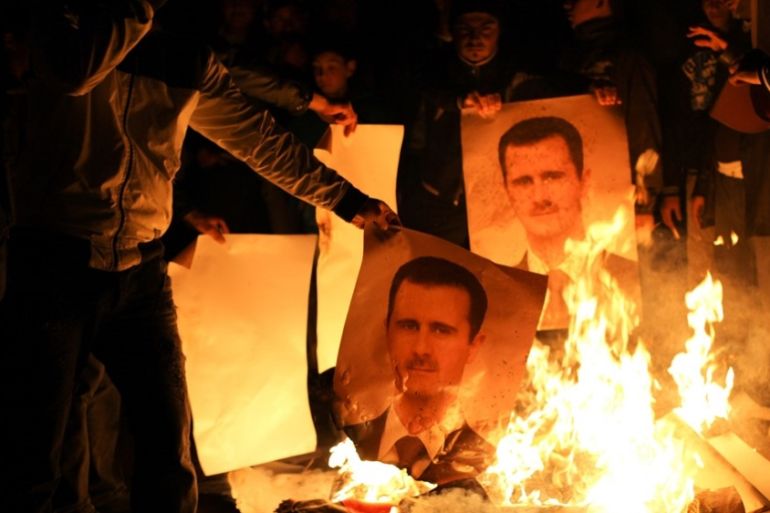Analysis: Mess in Syria could get messier
There is growing fear that dropping more bombs without a plan risks turning Syria into another Middle East misadventure.

Back in 2003, in what now seems like the break of the dawn of the new turbulent Middle East, the spectre of the US failure in Iraq was looming large.
The boast by US President George W Bush and the horde of neocons in his war cabinet that the democratisation of the region ran through Baghdad was soon to turn into a fiasco.
Things did not work out as planned with the invasion of Iraq, which toppled Saddam Hussein’s dictatorship.
Instead, it spread terrorism throughout the Middle East.
While Iraq has been torn apart, many other countries are now plunged into chaos as the entire region seems to be drifting towards a disaster.
And the main reason for the Iraq War to have backfired, of course, was that the Bush administration, driven by its obsession with Saddam, was unwilling to address the much-talked-about challenges of Iraq’s slide into turmoil after the war and the subsequent grow of terrorism.
For the administration, the risk was acceptable.
Q&A: Debate on Syria missing one thing: Syrians
|
There are increasing fear that dropping more bombs without a complete plan risks spreading the war and turn multilateral action in Syria into another Middle East misadventure, only this time on a much larger scale.
|
The UN Security Council’s resolution on November 20, which unanimously called on all countries to take the war on ISIL to its safe havens in Syria and Iraq is a marked departure from the 2003 war which the US fought unilaterally with a military decoration of a coalition of the willing.
It is increasingly acknowledged today that terrorism, which stretches across continents, needs to be tackled globally.
Russia’s build-up in Syria, the US decision to boost operations by deploying special forces, and French and British reinforcements are just signs that the world powers, acting in their own national interests when those interests are at stake, may have finally have become less selective in fighting this “international phenomena”.
Yet, the concoction that is emerging to fight ISIL is neither a broad international coalition sanctioned by the UN in accordance with its founding charter, nor it is a military alliance with a clear strategy, something which is no less worrying than Bush’s contemptuous approach to multilateralism.
In their intervention in Syria, the great powers do not seem to be seeking a broad alliance. There are no planning and logistical centres, and no joint command, control communication, and intelligence systems.
Their less formal and less comprehensive mission is to limit their war on ISIL to an air campaign with no boots on the ground, relying instead on the local resources in Syria, like the ones in Iraq, to do the actual fighting against ISIL.
Also, the political and diplomatic core of this approach is quite narrow: A political transition based on the Geneva-Vienna formula that would end the conflict in Syria.
The process is to initiate a dialogue with Syrian President Bashar al-Assad, but, also, like in Iraq, it envisages a broader national anti-ISIL front.
FORUM: How to solve a problem like Syria?
|
|
Many questions, however, arise about this approach, given the unrelenting carnage of Syria’s almost five-year conflict.
Who will be in control of the areas retaken from ISIL? Where will ISIL’s militants go? What is the future of Assad? What role will regional powerhouses play?
In Iraq, the forces that helped to take back some areas under ISIL’s control, namely the Kurdish Peshmerga, the Shia militias, and tribal Sunni forces, are already disputing who will be in control of the liberated territories.
Inside Sinjar, the Yazidi-populated city which was liberated last month, suspicion and anger now thrive as the Peshmerga have virtually annexed the city to the autonomous Kurdistan Region.
“Sinjar may be liberated but the community where Yazidis lived alongside Sunnis is now at war with itself,” wrote one commentator in the British daily Telegraph, on Wednesday.
This week tens of thousands of Shia pilgrims, mostly Iranians and Afghans, stormed border crossings with Iran and entered Iraq for a holy anniversary without visas, in flagrant defiance of Iraq’s national sovereignty.
The transgression shows how precarious Iraq’s security situation is after its government relied heavily on Iran in fighting ISIL.
Given these limitations, there are increasing fears that dropping more bombs without a complete plan risks spreading the war and turn multilateral action in Syria into another Middle East misadventure, only this time on a much larger scale.

If the world recognises ISIL as a global problem, many Arab commentators argue, it should work together with Arab and Muslim societies for a comprehensive strategy that entails religious and public education reforms as well as an end to tyranny and globalisation’s misfortunes.
“If it is imperative to destroy ISIL, as world leaders keep warning, then the solution should be to rectify the world,” wrote Hazem Saghieh, a political editor of the London-based Arab newspaper al-Hayat on Tuesday.